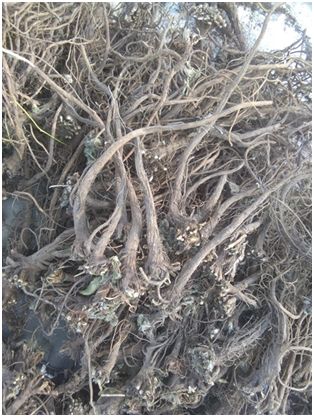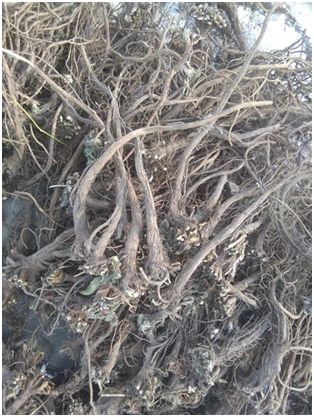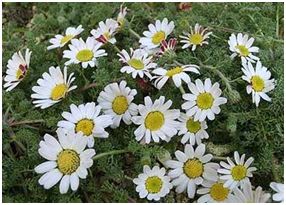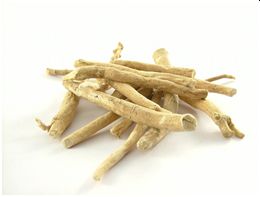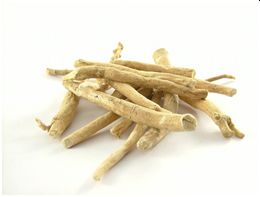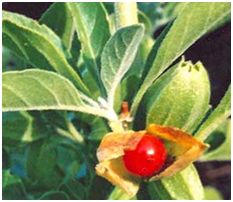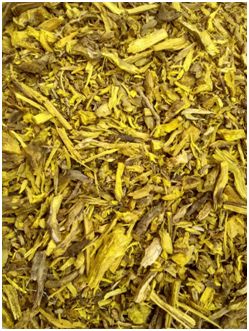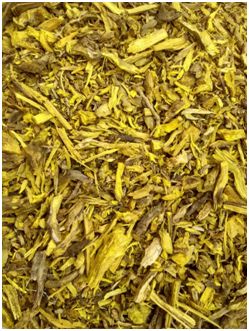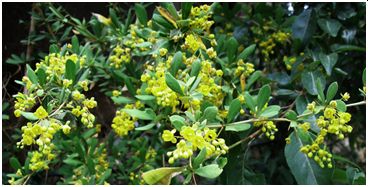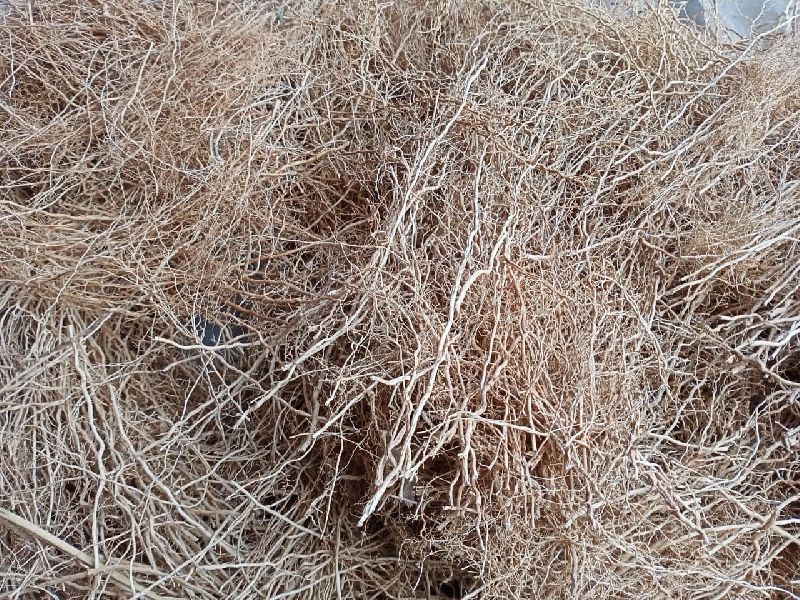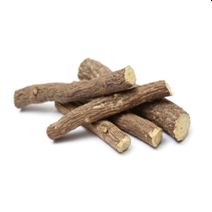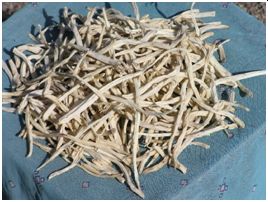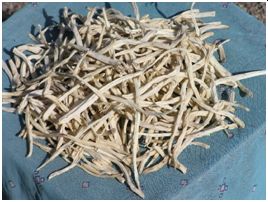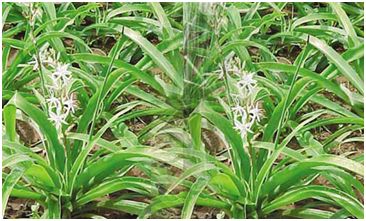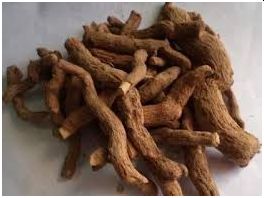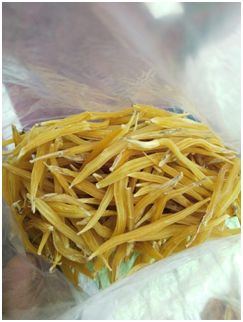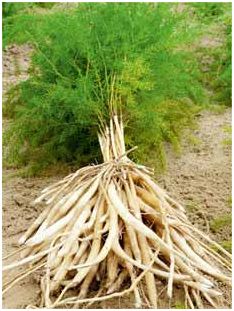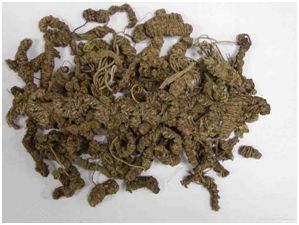-
dlherbalfarms@gmail.com -
View Mobile Number - Send SMS
- Send Email
- GST No. 07AHKPB8947L1ZT
Dried Roots
Leading Manufacturers, Exporters, Wholesaler, Trader and Distributor of Dried Akarkara Roots, Dried Ashwagandha Roots, Dried Daruhaldi Roots, DRIED KHUS ROOTS, Dried Mulethi Roots, Dried Safed Musli Roots, Dried Sarpagandha Roots, Dried Shatavari Roots and Dried Tagar Roots from Delhi.
| Business Type | Manufacturer, Exporter, Supplier, Trader |
| Type | Dried |
| Form | Root |
| Packaging Type | As Requirement |
| Botanical Name | Anacyclus Pyrethrum |
| Drying Process | Sun dried |
Akarkara roots are widely used because of its pungent efficacy in relieving toothache and in promoting a free flow of saliva, Child apraxia of speech (CAS) and delayed speech development.
It is used in Ayurvedic, Unani and in herbal medicine worldwide in premature ejaculation and impotency in males, toothache and pyorrhoea. It has libido stimulant and aphrodisiac (Vajikaran Rasayana) properties to treat male sexual dysfunction, including infertility.
When a piece of root is chewed for a few seconds, it gives a persistent pungent taste, a tingling sensation and a remarkable flow of saliva; there is a feeling of heat in the mouth soon followed by a pricking sensation in the tongue and lips.
KEY APPLICATION: Brain tonic, muscle relaxant, digestive stimulant, swelling and pain in gums, common cold, epilepsy and seizures
PLANT FAMILY: Asteraceae
BOTANICAL NAME: Anacyclus Pyrethrum
VERNACULAR NAMES: Pellitory, Mount Atlas, Akalkara, Akkorakaro, Akkalakara, Akkirkaram, Akkarakaaram, Akarkarabh, Kulekhara, Akikaruka, Aqaraqarha, Kalu
CHEMICAL COMPOSITION OF ROOT
The root contains alkaloids like pyrethrin, anacyclin, pellitorine, and inulin. Resin and some inorganic compounds are also present.
MEDICINAL PROPERTIES
The understanding of medicinal properties will help us utilize the herb better. Below are medicinal properties along with its meaning indicating multiple health benefits:
· Acrid- Bitter or pungent.
· Aphrodisiac- Stimulate sexual desire.
· Antiseptic- Destruct microorganism that produces septic diseases.
· Analgesic- Relieve pain
· Androgen- Promote the development of secondary male sexual organs & sexual characteristics.
· Anti-amnesiac- Treats a deficit in memory due to brain damage, disease, or psychological trauma.
· Anti-convulsant- Used to prevent or reduce the severity of epileptic fits or other convulsions.
· Antipyretic- Reduce fever
· Antioxidant- Neutralize the oxidation effect of free radicals.
· Adaptogen- Help the body adapt to stress whether physical, chemical or biological.
· Anti-inflammatory- Reduce redness, swelling, pain, tenderness, heat etc.
· Carminative- Cause expulsion of gas from the stomach or bowel.
· Diuretic- Increase the flow and volume of urine.
· Expectorant- Promote the secretion, liquefaction or expulsion of sputum from the respiratory tract.
· Spermatogenic- Help in the process of sperm production which occurs in the testes.
AYURVEDIC PROPERTIES
Rasa (Taste): Katu (Pungent)
Guna (qualities): Ruksha (Dry), Tikshna (Sharp in action)
Virya (Potency): Ushna (Hot)
Vipaka (Post Digestive Effect): Katu (Pungent)
Effects on Doshas (Humors): Akarkara pacifies Kapha and Vata Doshas; so it can be used effectively in diseases of Kapha and Vata origin
DOSAGE
Akarkara root powder, dosage variable from 125mg to as high as 1 gm.
(Please note that the exact dose depends on the age, strength, digestive power, nature of the illness, the state of the viscera, humors and disorders.)
IMPORTANT NOTE
The information provided is for educational purposes only. This data is not to be considered complete and is not guaranteed to be accurate.
| Business Type | Manufacturer, Exporter, Supplier, Trader |
| Type | Dried |
| Form | Roots |
| Packaging Type | As Requirement |
| Botanical Name | Withania Somnifera |
| Drying Process | Sun Dried |
An adaptogenic herb helps the body to resist physiological and psychological stress by adapting to the needs of the body.
Ayurveda has been using Ashwagandha for 3000 years. Its rejuvenating powder, anti-stress, anti-fatigue, tonic to the nervous system and general debility, nourishes both mind and body for it is said to bestow upon its user the vitality and strength of a horse.
The name Ashwagandha is from the Sanskrit language and is a combination of the word ‘ashva’, meaning horse, and ‘gandha’, meaning smell. The root has a strong aroma that is described as “horse-like”.
Ashwagandha can be used to treat Alzheimer's, Parkinson's, Huntington's and other neurodegenerative diseases at any stage of the disease, even before a person has been diagnosed and is still in the state of mild forgetfulness, etc. Its extract did not work directly on the brain. Instead, it enhanced a protein in the liver that is broken down and released into the blood to act as a sink for the amyloid and helps pull out the amyloid from the brain.
KEY APPLICATION: Insomnia, tuberculosis, bronchitis, asthma, hiccups, thyroid, joints inflammation, ulcer, cancer, strengthen heart muscles and cholesterol, leucoderma, fibromyalgia, menstrual problems, arthritis, diabetes, reduce blood pressure, reduce the side effects of chemotherapy, boost immunity
PLANT FAMILY: Solanaceae
BOTANICAL NAME: Withania Somnifera
VERNACULAR NAMES: Indian Ginseng, Poison Gooseberry, Winter cherry, Asgandha, Aksand, Asvagandha, Aasun, Angara Beru, Penneru, Amukkuram, Askanda, Asgandh, Amukkira
CHEMICAL COMPOSITION & NUTRIENTS ANALYSIS OF ROOT
The root is composed of 13 alkaloids are known as Isopelletierine, Anaferine, Cuseohygrine, Anahygrine, Tropine, etc. it has somniferin and steroidal Lactones as Withanolides, Withanoferins. Saponins, resin, phytosterol, Ipuranol and a mixture of saturated and unsaturated acids.
Nutrients proximate analysis per 100gm- Protein (g)3.9, fat (g) 0.3, crude fibre (g) 32.3, energy (g) 245, carbohydrate (g) 49.9, iron (g) 3.3, calcium (g) 23, total carotene (g) 75.7 & vitamin C (g) 3.7
MEDICINAL PROPERTIES
The understanding of medicinal properties will help us utilize the herb better. Below are medicinal properties along with its meaning indicating multiple health benefits:
· Aphrodisiac- Stimulate sexual desire.
· Antioxidant- Neutralize the oxidant effect of free radicals.
· Adaptogen- Help the body adapt to stress whether physical, chemical or biological.
· Anti-inflammatory- Reduce redness, swelling, pain, tenderness, heat...
· Anti-tumour- Prevent or inhibit the formation or growth of tumours.
· Anti-diabetic- Used to Control the level of glucose (sugar) in the blood.
· Anti-asthmatics- Treat or prevent asthma attacks.
· Anti-convulsant- Used to prevent or reduce the severity of epileptic fits or other convulsions.
· Diuretic- An agent that increases the flow and volume of urine.
· Immuno-modulatory- Used to regulate and normalize the immune system.
· Excellent Nerve Tonic- Act on or relive disorders of the nerves, sooth and strengthen the nerves.
· Sedative- Provide a soothing or calming effect or inducing sleep.
· Spermatogenic- Help in the process of sperm production which occurs in the testes.
· Tonic-Invigorate or strengthen the system of the body, boost energy, and improve overall health and longevity.
· Improve musculoskeletal problems such as Arthritis & Rheumatism.
AYURVEDIC PROPERTIES
Rasa (Taste): Tikta (Bitter), Katu (Pungent), Kashaya (Astringent)
Guna (Quality): Laghu (Light), Snigdha (Unctuous or oily)
Virya (Potency): Ushna (Heating)
Vipaka (taste conversion after digestion): Katu (Pungent)
Effects on doshas (Humors): Balances all doshas especially pacifies Vata & Kapha doshas
DOSAGE
The root powder is be taken in a dose of 3-6 grams
(Please note that the exact dose depends on the age, strength, digestive power, nature of the illness, the state of the viscera, humors and disorders.)
IMPORTANT NOTE
The information provided is for educational purposes only. This data is not to be considered complete and is not guaranteed to be accurate.
| Business Type | Manufacturer, Exporter, Supplier, Trader |
| Botanical Name | Berberis Aristata |
| Type | Dried |
| Form | Roots |
| Drying Process | Sun dried |
| Packaging Type | As requirement |
Daruhaldi was well known to the ancients as a medicine, a dietetic for the sick, and a dye. Its popular use as a remedy barberry bark and cider was held in all forms of abdominal inflammation, but especially those accompanied by hepatic derangement and jaundice.
The yellow root was used by Native Americans as a dye for fabrics as well as its widespread use in medicines. Barberry root tea was used to treat ulcers, sores, rheumatism and kidney ailments.
KEY APPLICATION: Supports healthy liver & gallbladder, gastrointestinal distress, blood purifier, boils & pimples, diarrhoea, jaundice, malaria, typhoid, hepatitis, enlarged spleen, leucorrhoea, ear infection & pain, fever, Increase appetite and improve digestion and prevent gastric reflux, promote bowel regularity, swollen gums, pyorrhoea & toothache, arthritis, osteoporosis and rheumatism, eczema, parasites & psoriasis, conjunctivitis, ophthalmia, trachoma and opacity, anal Fistula, vaginal discharge, sweating deficiency, bad cholesterol, enhance natural resistance, promote healthy skin
PLANT FAMILY: Berberidaceae
BOTANICAL NAME: Berberis Aristata
VERNACULAR NAMES: Indian berberry, Barberry, Ophthalmic barberry, Pepperidge Bush, Tree turmenic, Kashmoi, Rasont, Kashmal, Chitra, Dar-Hald, Rasaut, Maradarisina, Maramanjal, Daruhald, Chutro, Chitra, Kasmal, Simlu, Sumlu, Mullukala, Usikkala, Daruharidra, Darvi, Kata, Pitadaru, Suvarnavarna, Kashturipushpa, Bagisutra
CHEMICAL COMPOSITION OF ROOT
Alkaloids- berberine, oxyacanthine, and columbamine, a quaternary ammonium salt of isoquinoline alkaloid. Berberine – recognized for its outstanding ability to enhance the body’s natural resistance,
MEDICINAL PROPERTIES
The understanding of medicinal properties will help us utilize the herb better. Below are medicinal properties along with its meaning indicating multiple health benefits:
· Antibacterial- Destroy bacteria or suppress their growth.
· Anti-inflammatory- Reduce redness, swelling, pain, tenderness, heat etc.
· Antiseptic- Destroy micro-organism that produces septic diseases.
· Antipyretic- Reduce fever
· Antioxidant- Neutralize the oxidation effect of free radicals.
· Antimicrobial- Destroy or inhibit the growth of microorganisms & especially pathogenic microorganisms.
· Anti-cancer- Prevent a malignant and invasive growth or tumour.
· Anti-depressant- Diminish or reduce nervous or functional activity.
· Anti-diarrhoeal- Relieve symptoms of diarrhoea.
· AnticoagulantIn vivo or in vitro, suppress, delay, or nullify the coagulation of the blood.
· Cholagogue- Promote the flow of bile from the gallbladder into the duodenum.
· Anti-hypoglycaemic- Prevent abnormally diminished content of glucose in the blood.
· Anti-hypertensive- Lower high blood pressure.
· Hepatatic- Relieve inflammation of the liver.
· Hypolipidemic- Help in decreasing the lipid concentration of the blood.
· Bitter and stimulate the cardiovascular system.
AYURVEDIC PROPERTIES
Rasa (Taste) – Tikta (Bitter), kashaya (Astringent)
Guna (Qualities) - Laghu (Light to digest), Rooksha (Dry)
Virya (Potency) – Ushna (hot potency)
Vipaka (Post digestive effect) - Katu (Pungent)
Effect on tridosha (Humors) - Balances kapha and pitta dosha
DOSAGE
3-5gm in dry powder
(Please note that the exact dose depends on the age, strength, digestive power, nature of the illness, the state of the viscera, humors and disorders.)
IMPORTANT NOTE
The information provided is for educational purposes only. This data is not to be considered complete and is not guaranteed to be accurate.
| Business Type | Manufacturer, Exporter, Supplier, Distributor |
| Botanical Name | Vetiveria Zizaniodes |
| Form | Root |
| Type | Dried |
| Drying Process | Sun Dried |
| Packaging Type | As Per Requirement |
Khus is widely used as a cooling agent, tonic, and blood purifier. Being coolant, it relieves burning sensation & controls body temperature. It is used to treat many skin disorders and is known to have a calming effect on the nervous system.
\nAs per the Ayurvedic literature, it is also called ‘Sita-mulaka’ (having cool roots) and ‘Suganti-mulaka’ (means sweet-smelling).
\nSince ancient times, the Khusroots have been used for making fragrant screens, mats, hand fans, and baskets. The screens are hung like curtains in the houses and when sprinkled with water, impart a fragrant coolness to the air; the roots are woven along with bamboo splits and made into flat mattresses for use as under-beds to give a cooling effect. The roots have found increased use in electric room-coolers. It can be used to make high-class perfume and soaps. It is used in aromatherapy and for controlling pests & insects.
\nRoots have an earthy flavor used to make Khus water and Khussharbat. It cools the body and mind from excessive heat; uplifting, comforting, and relaxing.
\nKEY APPLICATION: Used in fevers, boils, burns, epilepsy, fever, scorpion sting, snakebite, sores in the mouth, headache, colic, flatulence, vomiting, constipation, gastritis, bloating, bad odour, urine retention, spermatorrhoea, strangury, relieves the burning sensation in eyes too.
\nPLANT FAMILY: Gramineae
\nBOTANICAL NAME:VetiveriaZizaniodes
\nVERNACULAR NAMES:Ushira, Useera, Bahu-muulaka, Sugandhimuula, Jataamedaa,Indragupta, Nalada, Laamajjaka,Sevya, Samagandhaka, Jalavaasa,Virana, Aadhya,Cuscus, Khas,Vettiver, Vilamichaver, Valo, Vala, Ramacham, Lavancha, Veera, Ranapriya, Sevya, Vetiver
\nCHEMICAL COMPOSITION OF ROOT
The North India Khus oil containslarge amounts of khusilal, other sesquiterpenesinclude khusol, khusimol,khusitone, cadinene and laevojuneol.
MEDICINAL PROPERTIES
The understanding of medicinal properties will help us utilize the herb better. Below are medicinal properties along with its meaning indicating multiple health benefits:
•Antibacterial- Destroy bacteria or suppresses their growth.
•Antioxidant- Neutralize the oxidation effect of free radicals.
•Astringent- Cause the drying and tightening of skin cells and other body tissues.
•Antimicrobial- Destroy or inhibit the growth of microorganisms and especially pathogenic microorganisms.
•Antispasmodic-Used to relieve spasm of involuntary muscle.
•Carminative- Expulsion of gas from the stomach or bowel.
•Cicatrisant- Speed up the eradication of scars and other marks from the skin.
•Diuretic-An agent that increases the flow and volume of urine.
•Diaphoretic- Produce perspiration
•Emmenagogue- Stimulate or increase menstrual flow.
•Expectorant- Promote the secretion, liquefaction or expulsion of sputum from the respiratory tract.
•Nervine- Act on or relieve disorders of the nerves; soothe the nerves.
•Refrigerant-Cooling reduces fever
•Stomachic- Stimulates gastric activity and improves appetite and digestion.
•Sedative- Provide a soothing or calming effect or inducing sleep.
AYURVEDIC PROPERTIES
Rasa (Taste) –Tikta (Bitter), Madhura (Sweet)
Guna (Qualities) – Rooksha (Dry), Laghu (Light)
Virya (Potency) –Sheeta (Cooling)
Vipaka (Post digestive effect) –Katu (Pungent)
Effect on tridosha- Pacifies Vata and Pitta
DOSAGE
Fibrous root—3-6g for infusion
(Please note that the exact dose depends on the age, strength, digestive power, nature of the illness, the state of the viscera, humors and disorders.)
IMPORTANT NOTE
The information provided is for educational purposes only. This data is not to be considered complete and is not guaranteed to be accurate.
| Business Type | Manufacturer, Exporter, Supplier, Trader |
| Type | Dried |
| Form | Root |
| Packaging Type | As Requirement |
| Botanical Name | Glycyrrhiza Glabra |
| Drying Process | Sun dried |
Licorice roots have been used worldwide as medicine and flavor in the industry for over 4000 years. Medicinal uses of licorice are recorded in texts such as Charaka Samhita, Assyrian Herbal (2000 BC) and Ebers Papyrus (1600 BC). The word liquorice essentially derives from Old Greek glykyrrhiza, glykys means “sweet,” and rhiza is “root”
The main beneficial effects of Mulethi (Yashtimadhu) are on the digestive system and respiratory system. It helps in relieving gastric symptoms such as heartburn, burning sensation in the abdomen, peptic and duodenal ulcer, abdominal colic, GERD and chronic gastritis.
KEY APPLICATION: Allergic rhinitis, arthritis, acidity, bursitis, fibromyalgia, gout, chronic gastritis, constipation, depression, emotional stress, memory loss, duodenal ulcer, ulcerative colitis, peptic ulcer, gingivitis, Heartburn, indigestion, mouth ulcer, tooth decay, hepatitis and inflammation of gallbladder, high cholesterol level, baldness, eczema, psoriasis, canker sores, cough, asthma, bronchitis,
PLANT FAMILY: Fabaceae
BOTANICAL NAME: Glycyrrhiza Glabra
VERNACULAR NAMES: Sweetwood, Liquorice, Licorice, Yashtimadhuka, Jesthimadhu, Jethimadha, Madhuka, Multhi, Erattimadhuram, Jatimadhu, Athimadhuram, Atimadhuram
CHEMICAL COMPOSITION OF ROOT
The medicinal property of mulethi is mainly because of the presence of powerful phytochemicals namely flavonoids, chalcones & saponins. Glycyrrhizin is a popular saponin that is responsible for the sweet taste (50 time sweeter than sugar). Liquiritin, licoflavonol, liquiritigenin, etc are the common chalcones that provide the distinct yellowish colour to mulethi.
MEDICINAL PROPERTIES
The understanding of medicinal properties will help us utilize the herb better. Below are medicinal properties along with its meaning indicating multiple health benefits:
· Aphrodisiac – Stimulate sexual desire.
· Anti-allergic- Tend to relieve or control allergic symptoms.
· Anti-tussive- Used to prevent or relieve a cough.
· Antispasmodic- Help reduce spasms and relieve pain.
· Anti-inflammatory- Reduces redness, swelling, pain, tenderness, heat...
· Antiseptic- Destruct microorganism that produces septic diseases.
· Antioxidant- Protect body cells from damage caused by the oxidative effects of free radicals.
· Antimicrobial-Destroy or inhibit the growth of microorganisms and especially pathogenic microorganisms.
· Antidepressant- Diminish or reduce nervous or functional activity.
· Anti-asthmatic- - Treat or prevent Asthma attacks.
· Antacid- Prevent, neutralize, or counteract the acidity of the stomach.
· Anti-arthritis- Chronic inflammation of joints, accompanied by pain & structural changes.
· Anti-stress- Relive mental, emotional or physical strain or tension.
· Anti-ulcerogenic- Prevent the formation of ulcers.
· Demulcent- Relieve irritation of the mucous membranes in the mouth by forming a protective film.
· Expectorant- Promote the secretion, liquefaction or expulsion of sputum from the respiratory tract.
· Emollient- An agent that softens or soothes the skin.
· Immuno-modulatory- Adjust or tone down or regulate the immune system.
· Laxative- Tend to stimulate or facilitate the evacuation of the bowels.
· Mild Estrogenic-Steroid hormones produced primarily by the ovaries that stimulate the development and maintenance of female sex characteristics & systemic effects.
· Pectoral (Moderate) - Strengthen chest muscle.
· Hepatoprotective: Prevent damage to the liver.
AYURVEDIC PROPERTIES
Rasa (Taste) – Madhura (sweet)
Guna (Qualities) - Guru (heavy) & Snigdha (unctuous or oily)
Virya (Potency) – Sheeta (cold potency)
Vipaka (Post digestive effect) – Madhura (sweet)
Effect on tridosha (Humors) - Pacifies vata and pitta
DOSAGE
1-4gm in dry powder form
(Please note that the exact dose depends on the age, strength, digestive power, nature of the illness, the state of the viscera, humors and disorders.)
IMPORTANT NOTE
The information provided is for educational purposes only. This data is not to be considered complete and is not guaranteed to be accurate.
| Business Type | Manufacturer, Exporter, Supplier, Trader |
| Type | Dried |
| Form | Root |
| Packaging Type | As Requirement |
| Botanical Name | Chlorophytum Borivilianum |
| Colour | White |
| Drying Process | Sun dried |
The changing lifestyle is taking a toll on the status of male sexual health in the global population. The incidence of infertility, erectile dysfunction (said to afflict as much as 10% of the male population), subnormal desire and performance in sexual intercourse are increasing alarmingly.
Safes musli has gained a well-established domestic (Indian) and international market for being the herbal alternative of "Viagra" without any side effects.
Safed musli is used for its versatile Shukrala (beneficial effect on male sexual health), Rasayana (adaptogenic activity), and Balya (general health tonic) properties. Musli is said to enhance not only sexual performance, but also improves the quality of the off-springs.
KEY APPLICATION: Arthritis, cancer, diabetes, boost vitality and sexual performance, premature ejaculation, low libido, fatigue, low sperm count, sexual debility, male sexual potency, male fertility, impotence, oligospermia, nightfall treatment, sexual weakness
PLANT FAMILY: Liliaceae
BOTANICAL NAME: Chlorophytum Borivilianum
VERNACULAR NAMES: Shaqaqule, Dholi Musli, Khairuwa, Shedheveli, Sweta Musli, Taniravi Thang, Tella Nela Tadi Gaddalu
CHEMICAL COMPOSITION OF ROOT
Musli is a rich source of over 25 alkaloids, vitamins, minerals, proteins, carbohydrates, steroids, saponins and polysaccharides.
MEDICINAL PROPERTIES
The understanding of medicinal properties will help us utilize the herb better. Below are medicinal properties along with its meaning indicating multiple health benefits:
· Aphrodisiac- Stimulate sexual desire.
· Adaptogen- Help the body adapt to stress whether physical, chemical or biological.
· Androgen- Promote the development of secondary male sexual organs & sexual characteristics.
· Antacid- Prevent, neutralize, or counteract the acidity of the stomach.
· Anti-arthritis- Treat chronic inflammation of a joint, accompanied by pain & structural changes.
· Anti-cancer- Prevent a malignant and invasive growth or tumour.
· Anti-inflammatory- Reduce inflammation
· Anti-microbial- Destroy or inhibit the growth of microorganisms and especially pathogenic microorganisms.
· Antioxidant- Neutralize the oxidation effect of free radicals.
· Anti-stress- Relive mental, emotional, physical stress or tension.
· Alterative- Restore normal health.
· Anti-hyperglycemic- Bring down the abnormally high level of glucose in the blood.
· Cardio-protective- Protect heart
· Erectogenic- Produce an erection of the penis.
· Galactagogue- Promote the secretion and flow of milk.
· Immuno-modulatory- Adjust or tone down or regulate the immune system.
· Oligospermia- Treat Oligospermia, improve sperm count, volume, liquefaction time and motility.
· Tonic- Invigorate or strengthen the system of the body, boost energy and improve overall health and longevity.
AYURVEDIC PROPERTIES
Rasa (Taste): Madhura (sweet)
Guna (Quality): Guru (Heavy) & Snigdha (Unctuous or oily)
Virya (Potency): Sheeta (cold)
Vipaka (taste conversion after digestion): Madhura (Sweet)
Effects on doshas (Humors): Pacifies Vata & Pitta doshas; increases Kapha
DOSAGE
3-5 grams of root powder preferably with warm milk once or twice a day.
(Please note that the exact dose depends on the age, strength, digestive power, nature of the illness, the state of the viscera, humors and disorders.)
IMPORTANT NOTE
The information provided is for educational purposes only. This data is not to be considered complete and is not guaranteed to be accurate.
| Business Type | Manufacturer, Exporter, Supplier, Trader |
| Type | Dried |
| Form | Root |
| Packaging Type | As Requirement |
| Drying Process | Sun Dried |
| Botanical Name | Rauwolfia Serpentina |
Sarpgandha means something that has the smell (gandha) of a snake (sarpa). It has been used for millennia as an antidote against bites of venomous reptiles. It’s popularly known as pagal kee dawa. It is an exceptionally powerful herb.
Sarpagandha contains Reserpine, an alkaloid that is responsible for lowering blood pressure and inducing a calming effect, reduces the heart rate and acts as a tranquilizer.
KEY APPLICATION: Hypertension, high blood pressure (BP), anxiety, nervousness, insomnia, schizophrenia, insanity, epilepsy, mental excitement, dysentery, high fever, snake bite, premature ejaculation
PLANT FAMILY: Apocynaceae
BOTANICAL NAME: Rauwolfia Serpentina
VERNACULAR NAMES: Black snake root / Indian snake root, Amalpari, Arachoritita, Chandra, Chandrabhaga, Sutranavi, Patalagandhi, Churannavilpori, Harki, Patalagarur, Sanochado, Patalguruda, Chevanamalpodi, Patalaguni, Patalagaruda, Adkayi, Dhanmarua, Dhawalvitapa, Dhawalbarua
CHEMICAL COMPOSITION OF ROOT
Roots contain more than 50 alkaloids. Therapeutically important alkaloids are reserpine, deserpidine, rescinnamine, yohimbine, ajmaline, ajmalinine, ajmalicine, serpentine, serpentinine, iso-ajmaline, reserpidine, rauwolfinine, indobine, indobinine, isoreserpine, isoreserpiline & yohimbinine.
MEDICINAL PROPERTIES
The understanding of medicinal properties will help us utilize the herb better. Below are medicinal properties along with its meaning indicating multiple health benefits:
· Anti-epileptic- Tend to suppress or prevent epilepsy.
· Anti-hysteric- Counter hysteria
· Anti-tussive- Prevent or relieve cough.
· Anti-hypertensive- Reduce high blood pressure.
· Anti-depressant- Diminish or reduce nervous or functional activity.
· Anti-bacterial- Destroy bacteria or suppresses their growth.
· CNS Depressant- Depress or slow the sympathetic impulses of the central nervous system.
· Dysmenorrhea- Reduce pains occurring during the menstrual periods.
· Febrifuge- Reduce fever
· Hypnotic- Induce sleep
· Narcotic - Affect mood or behavior.
· Sedative- Provide a soothing or calming effect.
· Sympatholytic- Block the effects of stimulation of the sympathetic nervous system.
· Styptic- Stop bleeding when it is applied to a wound.
· Nervine tonic- Strengthen the nervous system.
· Neuroleptic- It may produce a state of apathy, lack of initiative and limited range of emotion. In psychotic patients, neuroleptic herb causes a reduction in confusion and agitation and tends to normalize psychomotor activity.
AYURVEDIC PROPERTIES
Rasa (Taste) – Tikta (bitter)
Guna (Qualities) - Rooksha (dry)
Virya (Potency) – Ushna (hot potency)
Vipaka (Post digestive effect) – Katu (pungent)
Effect on tridosha (Humors)- Balances Vata& Kapha doshas
DOSAGE
1. Root powder for normalizing blood pressure 1-2gm
2. Root powder for restlessness, anxiety & inducing sleep 3-6gm
(Please note that the exact dose depends on the age, strength, digestive power, nature of the illness, the state of the viscera, humors and disorders.)
IMPORTANT NOTE
The information provided is for educational purposes only. This data is not to be considered complete and is not guaranteed to be accurate.
| Business Type | Manufacturer, Exporter, Supplier, Trader |
| Type | Dried |
| Form | Roots |
| Packaging Type | As Requirement |
| Botanical Name | Asparagus Racemosus |
| Drying Process | Sun Dried |
Shatavari- Ayurveda gift to women. It is also called as a “THE QUEEN HERB” increases “love and devotion”. It benefits in all stages of women’s life; support the transitions from puberty to adulthood to motherhood and into the post-menopausal age.
Shatavari is mentioned as one of the six most important rasayanas or rejuvenating in many Ayurvedic texts. A nourishing herb promotes the general well-being of the body by supporting immunity, vitality, and liveliness of the body, mind, and soul.
It is the main Ayurvedic rejuvenating tonic for the female, as is Ashwagandha for the male. In Sanskrit the name translates to "she who possesses 100 husbands", referring to the herbs rejuvenating effect upon the female reproductive organs. It strengthens a woman to the point where she is being capable of producing thousands of healthy ova.
KEY APPLICATION: Improves sperm health, libido stimulant, eye disorders, peptic ulcers, hyperacidity, nasal bleeding, menorrhagia, rectal bleeding, tumors, diarrhea, nervous disorders, dyspepsia, cancer, digestive system, hormonal imbalance, PMS, menopausal symptoms, vaginal dryness, enhances breast milk, excellent gym supplement
PLANT FAMILY: Asparagaceae
BOTANICAL NAME: Asparagus Racemosus
VERNACULAR NAMES: Asparagus, wild Asparagus, Majjige Gadde, Sadavare, Satavari, Satomul, Satamuli, Sathavari, Nunggarei, Vari, Chhotta Kelu, Satawar, Shakakul, Kurilo, Atirasa, Shatvirya, Chatavali
CHEMICAL COMPOSITION & NUTRIENTS ANALYSIS OF ROOT
Shatavari is a great source of phytochemicals like steroidal saponins, alkaloids, oligosaccharides, mucilage, isoflavones. Sterols is there as sitosterol.
Nutrients proximate analysis standard method AOAC (2007) per 100gm- Protein (g)2.47, fat (g) 0.11, crude fibre (g) 2.5, energy (g) 22, carbohydrate (g) 3.39, iron (g) 2.17, calcium (g) 26, total carotene (g) 87.5 & vitamin C (g) 5.8
MEDICINAL PROPERTIES
The understanding of medicinal properties will help us utilize the herb better. Below are medicinal properties along with its meaning indicating multiple health benefits:
· Aphrodisiac- Stimulate sexual desire.
· Antioxidant- Neutralize the oxidation effect of free radicals.
· Anti-inflammatory- Reduce redness, swelling, pain, tenderness, heat etc.
· Antiseptic- Destruct microorganisms that produce septic diseases.
· Antacid- Prevent, neutralize, or counteract the acidity of the stomach.
· Anti-spasmodic- Used to relieve spasm of involuntary muscle.
· Anti-tumour- Prevent or inhibit the formation or growth of tumours.
· Anti-aging- The high energy and bio-generative properties promote cell regeneration and proper maintenance of old cells. Takes care of both mental and physical aging.
· Anti-diabetic- Used to control the level of glucose (sugar) in the blood.
· Diuretic- An agent that increases the flow and volume of urine.
· Demulcent- Help, soothe and protect the mucous membranes in the body, it has a direct action on the lining of the intestines, soothing and reducing irritation.
· Immuno-modulatory - Used to regulate and normalize the immune system.
· Nutritive tonic- Invigorates or strengthens the system of the body, boosts energy and improves overall health and longevity.
· Rejuvenative-Help to make young again; restore to youthful vigour, appearance, etc.
· Galactogogue- Promotes the flow and volume of milk in lactating mothers.
· Laxative- Tend to stimulate or facilitate the evacuation of the bowels.
AYURVEDIC PROPERTIES
Rasa (Taste): Madhura (Sweet), Tikta (Bitter)
Guna (qualities): Guru (Heaviness), Snigdha (Unctuous or oily)
Virya (Potency): Sheeta (Cold potency)
Vipaka (Post Digestive Effect): Madhura (Sweet)
Effects on Doshas (Humors): Pacifies Vata (Air) & Pitta (Fire)
DOSAGE
3-6gm in dry powder preferably in warm milk after food.
(Please note that the exact dose depends on the age, strength, digestive power, nature of the illness, the state of the viscera, humors and disorders.)
IMPORTANT NOTE
The information provided is for educational purposes only. This data is not to be considered complete and is not guaranteed to be accurate.
| Business Type | Manufacturer, Exporter, Supplier, Trader |
| Botanical Name | Valeriana Wallichii |
| Type | Dried |
| Form | Roots |
| Drying Process | Sun Dried |
| Packaging Type | As requirement |
Tagar is one of the most important herbs in the Ayurvedic medicine system for sleeping disorders. It has a calming, grounding, relaxing and balancing effect on the mind.
KEY APPLICATION: Tagar has remarkable influence on cerebrospinal system, migraine, neuralgia, anxiety, nervous tensions & weakness, breathlessness, epilepsy, giddiness and fainting fits, insomnia, stimulates digestive system, reduce flatulence, correct tremor, inflammatory conditions.
PLANT FAMILY: Valerianaceae
BOTANICAL NAME: Valeriana Wallichii
VERNACULAR NAMES: Tagar, Sugandhbala, Mushkbala, Indian Valerian, Bala, Tagarai, Thakaram, Grandhi Tagaramu, Kalanusari
CHEMICAL COMPOSITION OF ROOT
Roots contain cyclopentapyrans (sedative, tranquilizing, and bactericidal properties), acacetin-7-O-rutinosides, valtrate, didrovaltrate, linarin iso-valerinate, valepotriates, iridoid ester glycoside, valerosidatum &Cyclopentapyrans
MEDICINAL PROPERTIES
The understanding of medicinal properties will help us utilize the herb better. Below are medicinal properties along with its meaning indicating multiple health benefits:
· Analgesic- Alleviate pain in the body
· Antispasmodic- Used to relieve spasm of involuntary muscle.
· Anticonvulsant- Prevent or reduce the severity of epileptic fits or other convulsions.
· Anti-inflammatory- Reduce inflammation.
· Antioxidant- Neutralize the oxidant effect of free radicals.
· Calmative- Have relaxing or pacifying properties; sedative.
· Carminative- Expulsion of gas from the stomach or bowel.
· Expectorant- Promote the secretion, liquefaction or expulsion of sputum from the respiratory tract.
· Nervine- Acting on or relieving disorders of the nerves; soothing the nerves
· Stimulant- Raise levels of physiological or nervous activity in the body.
· Tranquilizer- Reduce tension or anxiety.
AYURVEDIC PROPERTIES
Rasa (Taste): Kashaya (Astringent), Katu (Pungent), Tikta (Bitter)
Guna (Quality): Laghu (Light), Snigdha (Unctuous or oily)
Virya (Potency): Ushna (Heating)
Vipaka (taste conversion after digestion): Katu (Pungent)
Effects on doshas (Humors): Balances all doshas especially pacifies Vata & Kapha doshas
DOSAGE
1-3gm in dry powder form
(Please note that the exact dose depends on the age, strength, digestive power, nature of the illness, the state of the viscera, humors and disorders.)
IMPORTANT NOTE
The information provided is for educational purposes only. This data is not to be considered complete and is not guaranteed to be accurate.

